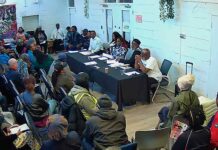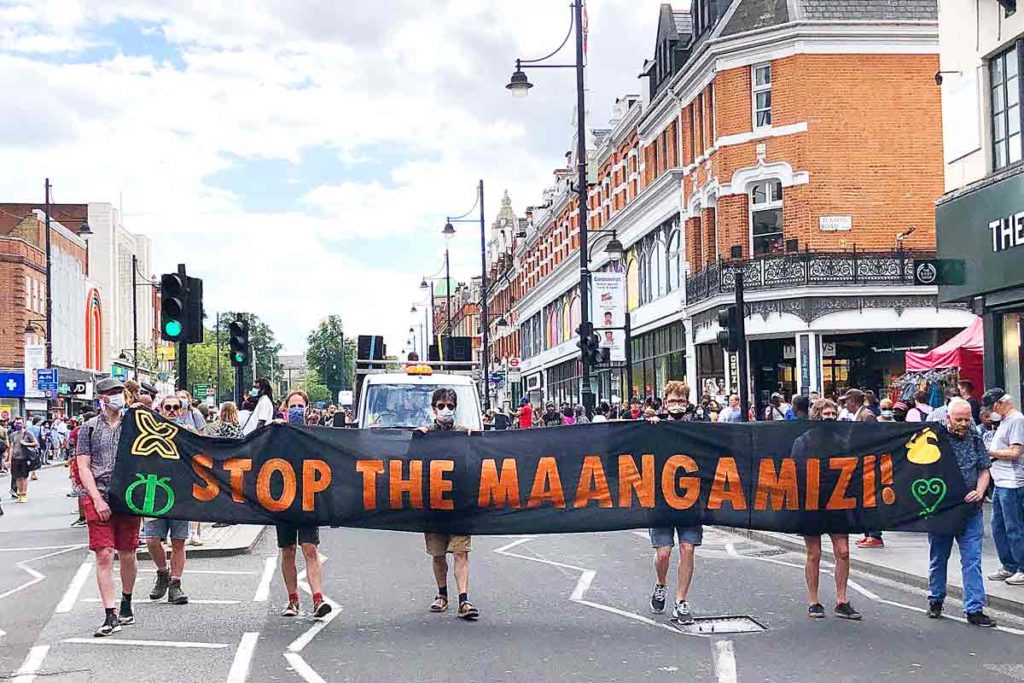
The Afrikan Reparations Rebellion event will again take place in Brixton’s Windrush Square this year.
The “Groundings Space” in the square on Sunday 1 August is backed by local and national Extinction Rebellion groups, which again plan to block local roads.
It is organised by the Stop The Maangamizi Campaign and the Afrikan Emancipation Day Reparations March Committee.
Maangamizi is a Swahili word meaning annihilation.
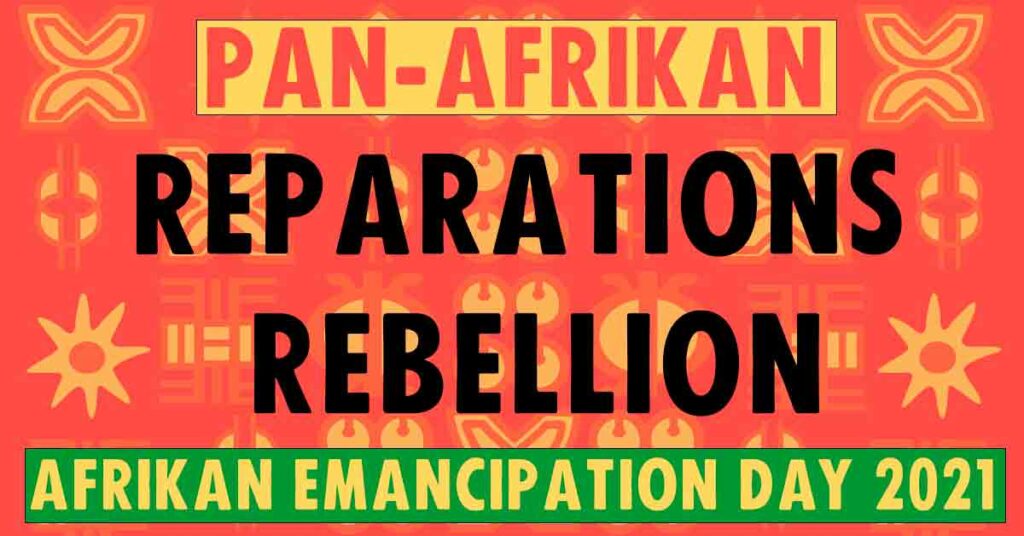
The term groundings was popularised by the Afrikan-Guyanese scholar-activist and historian Dr Walter Rodney.
Its meaning, say the organisers, is “popular education sessions with grassroots forces for organising resistance towards the concrete struggle for a new society and another world”.
They say that Brixton will be become a “Global Citizens Garden”, with a day of edutainment, music, art and people’s assemblies, “celebrating the five continents of Afrika, Abya Yala [America], Asia, and Europe, and possibly Oceania”.
Extinction Rebellion says it has been asked to support the event by “clearing and blocking traffic” on Brixton Road to hold a space for the day’s events.
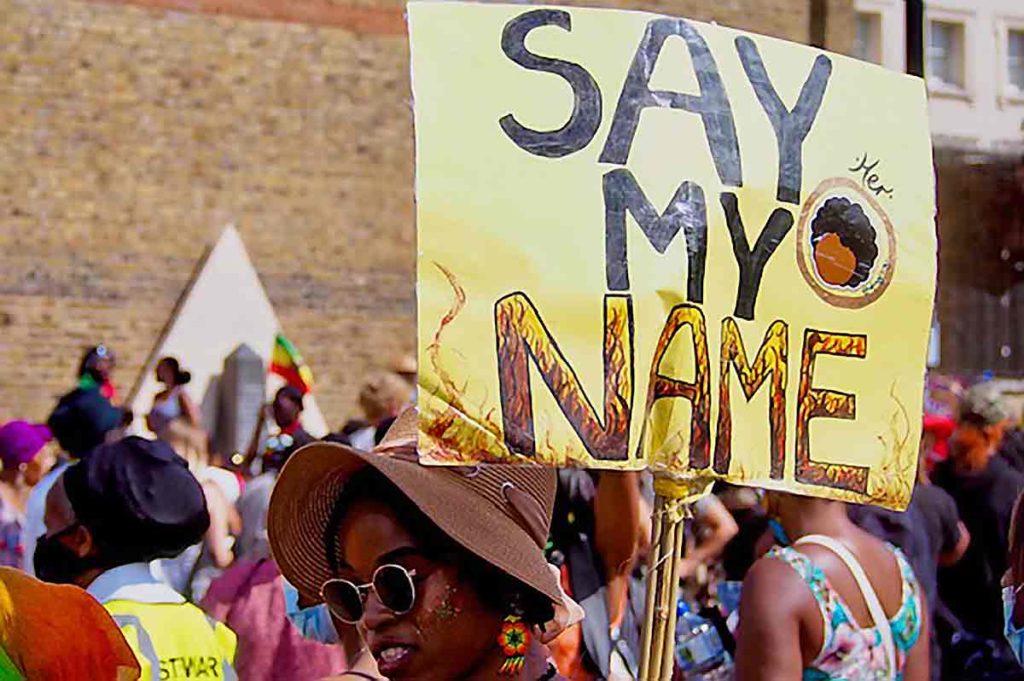
It is appealing, via Facebook and other social media, for groups and people to volunteer skills, support and solidarity for the event.
Last year’s event saw larger than ever numbers take part in the event and attracted substantial attention from national media.
Previously, the organisers had called for marches from Brixton to Parliament in Westminster which, since 2014, received little publicity.
Last year they decided to “lock down Brixton” because “we are not being heard in our demand for the UK government to establish the all-party parliamentary commission of inquiry for truth and reparatory justice”.
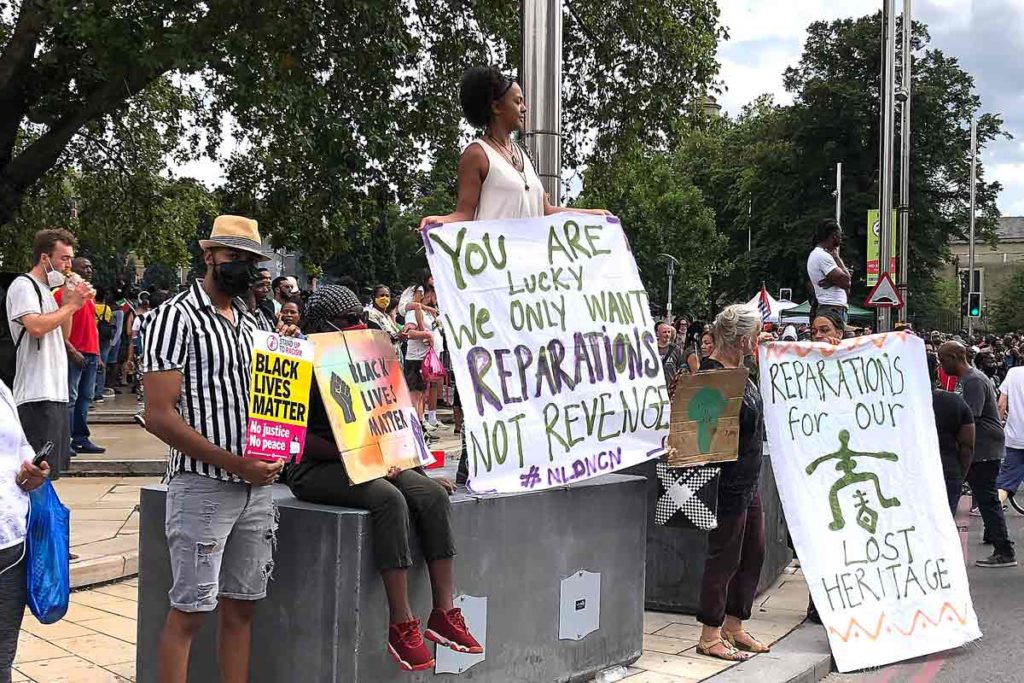
In a guest post for the Blog, one of the organisers, Esther Stanford-Xosei, explained the political, historical and social background to the event.
The demand for reparations would be a start to the process of repairing the vast damage to humans and the ecology by the enslavement of Africans over centuries.
This year’s event will again “promote the relevance of #ReparatoryJustice and #EnvironmentalJustice works to the Pan-Afrikan advancement of #PlanetRepairs solutions to the climate and ecological crises as an anti-racist and social equity matter of global justice for all.”
Brixton’s Black Cultural Archives website has a section with recordings made in 2015 about the annual march and reparations movement which has been campaigning in the UK since at least the 1960s.


